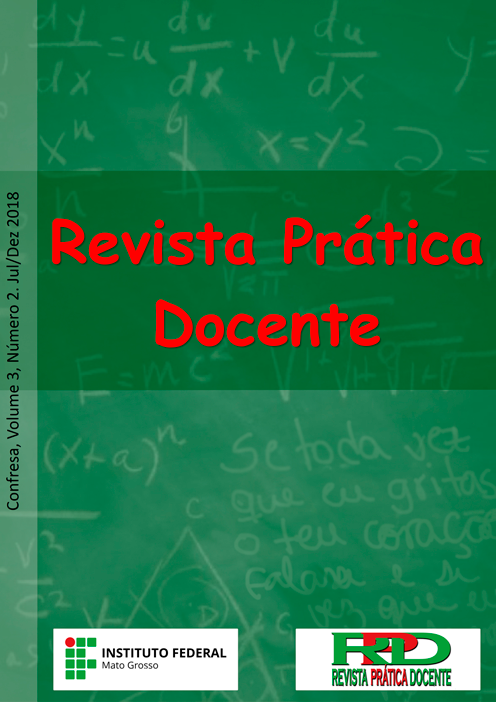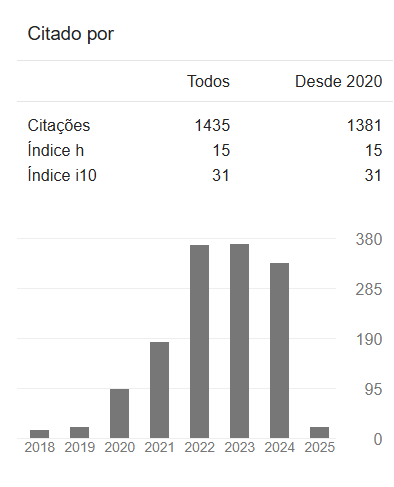TEACHING WITH RESEARCH AND SIMULATED JURY AS STRATEGIES OF INSTRUCTION IN ORDER TO DISCUSS ON INDIGENOUS SCHOOL EDUCATION
DOI:
10.23926/RPD.2526-2149.2018.v3.n2.p752-767.id221Keywords:
teaching strategy, Mimic jury, Teaching with research, Indigenous school education, RCNEI/indigenousAbstract
Teaching strategies may contribute to an effective instruction as well as to an intrinsic motivation of the student learning. Among the several teaching strategies, they are highlighted, in this paper, the “teaching with research” and the “mimic jury” as methodological procedures to discuss the indigenous school education, based on a school subject of the 5th school term, performed by a teacher education undergraduate course (named Pedagogy) in a local College in Barra do Corda - MA - Brazil. This is an experience report with its application that involves both strategies mentioned, to discuss issues which are relevant to the school education which is offered to the indigenous communities. Bearing in mind the enormous importance of the chosen theme, mainly because of the central region of the state of Maranhão that presents a large contingent indigenous population whose descendants are from the ethnic groups Canela (Ramkokamekrá and Apaniekrá) and Tenetehara-Guajajara. The strategies “teaching with research” and “mimic jury” have provided challenging activities to develop scientific and pedagogical atitudes necessary to understand the subject investigated and discussed.
Downloads
Metrics
References
ANASTASIOU, L. G. C; ALVES, L. P. (Orgs.). Estratégias de Ensinagem. In:. Processos de Ensinagem na Universidade: pressupostos para estratégias de trabalho em aula. 3. ed. Joinville: Univille, 2004. p. 67-100.
ARAÚJO, A. V. et al. Povos Indígenas e as Leis do "Brancos": o direito à diferença. Brasília/Rio de Janeiro: MEC-Secad/Laced, 2006.
BARROSO, T. O desenvolvimento do discurso argumentativo por crianças do ensino fundamental: articulação e coordenação de sequências argumentativas no texto de opinião. Revista de Estudos Linguísticos Veredas, Juiz de Fora, v. 11, n. 2, 2/2007, p. 101-117.
BRASIL. Constituição (1988). Constituição da República Federativa do Brasil. Disponível em: <http://www.planalto.gov.br/ccivil_03/constituicao/constituicao.htm>. Acesso em: 27 mar. 2018.
BRASIL. Decreto Presidencial nº 26/1991. Dispõe sobre a Educação Indígena no Brasil. Disponível em: <http://www.planalto.gov.br/ccivil_03/decreto/1990-1994/d0026.htm>. Acesso em: 27 mar. 2018.
BRASIL. Lei de Diretrizes e Bases da Educação Nacional. Lei número 9394, 20 de dezembro de 1996. Disponível em: <http://www.planalto.gov.br/Ccivil_03/leis/L9394.htm>. Acesso em: 27 mar. 2018.
BRASIL. Ministério da Educação. Referencial Curricular Nacional para as Escolas Indígenas. Brasília: MEC, 1998.
BRASIL. Decreto nº 5.051, de 19 de abril de 2004. Promulga a Convenção no 169 da Organização Internacional do Trabalho - OIT sobre Povos Indígenas e Tribais. Disponível em: <http://www.planalto.gov.br/ccivil_03/_ato2004-2006/2004/decreto/d5051.htm>. Acesso em: 27 mar. 2018.
CANDADO, R. A. R. Referencial Curricular Nacional para Escolas Indígenas: Cultura e Conhecimento no Ensino de História. 2006. 111 f. Dissertação (Mestrado em Educação) - Universidade Católica Dom Bosco, Campo Grande. Disponível em: <http://site.ucdb.br/public/md-dissertacoes/7923-o-referencial-curricular-nacional-para-escolas-indigenas-cultura-e-conhecimento-no-ensino-de-historia.pdf>. Acesso em: 20 fev. 2018.
CARLINI, A. L. Procedimentos de ensino: escolher e decidir. In: SCARPATO, Marta et al. (Org.). Os procedimentos de ensino fazem a aula acontecer. São Paulo: Avercamp, 2004.
DEMO, P. Educar pela pesquisa. Campinas: Autores Associados, 1996.
LEMOV, D. Aula Nota 10: 49 técnicas para ser um professor campeão de audiência. São Paulo: Da Boa Prosa; Fundação Iemann, 2011.
MOREIRA, M. A. Linguagem e Aprendizagem Significativa. In: ENCONTRO INTERNACIONAL: LINGUAGEM, CULTURA E COGNIÇÃO, 2., 2003, Belo Horizonte. Anais... Belo Horizonte: UFMG, 2003. Disponível em <http://www.if.ufrgs.br/~moreira/>. Acesso em: 27 mar. 2018.
OLIVEIRA, J. P.; FREIRE, C. A. R. A Presença Indígena na Formação do Brasil. A presença indígena na formação do Brasil. Brasília: MEC-Secad/Laced, 2006. (Coleção Educação para Todos; 13).
REAL, L. M. C.; MENEZES, C. Júri simulado: possibilidade de construção de conhecimento
a partir de interações em um grupo. In: NEVADO, R.A.; CARVALHO, M.J.S.; MENEZES, C.S. (Org.). Aprendizagem em rede na Educação a Distância: estudos e recursos para formação de professores. Porto Alegre, RS: Ricardo Lenz, 2007.
RODRIGUES, M.G.V.; GONCALVES, M.D.C. Ensino com Pesquisa: uma estratégia formadora para alunos de pós-graduação em medicina. Rev. Col. Bras. Cir., v. 40, n. 3, p. 241-245, 2013. DOI: https://doi.org/10.1590/S0100-69912013000300014
SOUZA, L.F.N.I. Estratégias de aprendizagem e fatores motivacionais relacionados. Educar, Curitiba, n. 36, p. 95-107, 2010. DOI: https://doi.org/10.1590/S0104-40602010000100008
Downloads
Published
How to Cite
Issue
Section
License
Copyright (c) 2023 A Revista Prática Docente tem o direito de primeira publicação

This work is licensed under a Creative Commons Attribution-NonCommercial 4.0 International License.
Authors who publish in this journal agree to the following terms:
- Authors retain the copyright and grant the journal the right of first publication, with the paper simultaneously licensed under the Licença Creative Commons Attribution allows the sharing of the work with acknowledgment of authorship and initial publication in this journal.
- Authors are authorized to take additional contracts separately, for non-exclusive distribution of the version of the work published in this journal (e.g. publish in institutional repository or as a book chapter), with acknowledgment of authorship and initial publication in this journal.











